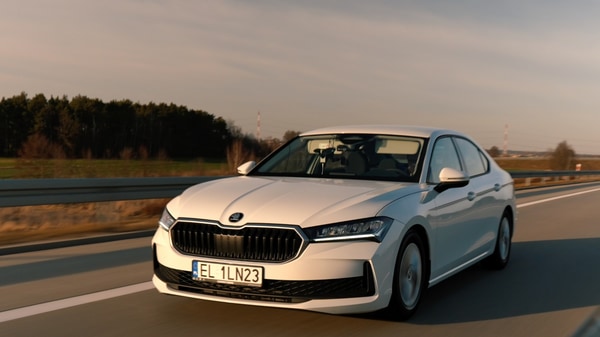The record was set using a completely standard Skoda Superb 2.0 TDI, no performance tweaks, no exotic modifications. The car used was the Essence trim, powered by a 2.0-litre four-cylinder diesel engine producing 148 bhp and 360 Nm of torque, paired with a seven-speed DSG gearbox.

In a world where the automotive universe is shifting rapidly in the direction of electric vehicles, a diesel sedan has suddenly made everyone remember why efficiency is still valuable. The Skoda Superb 2.0 TDI new generation went and did something incredible, covering 2,831 kilometres on one tank of diesel, setting a new world record for the longest distance covered without a refill.


The feat is not so much about the one man’s stamina on the wheel, it’s about engineering finesse, aerodynamics, and the timeless charm of diesel efficiency. It’s the kind of moment that evokes the classic Indian question, “Kitna deti hai?” – only this time, the answer comes from a luxury sedan that’s typically more about comfort than conservation.
Also Read : Skoda Octavia RS launched in India at ₹49.99 lakh in limited numbers
Tested for efficiency
The record was set using a completely standard Skoda Superb 2.0 TDI, no performance tweaks, no exotic modifications. The car used was the Essence trim, powered by a 2.0-litre four-cylinder turbo diesel engine producing 148 bhp and 360 Nm of torque, paired with a seven-speed DSG gearbox and front-wheel drive. Its official WLTP fuel consumption stands at 4.8 litres per 100 km, already impressive for a car of its size.
Yet, over a carefully planned route stretching across Europe, the Superb managed to deliver nearly double the efficiency, averaging just 2.61 litres per 100 km or 38.3 kmpl. For perspective, that’s roughly the fuel economy of a small hatchback, achieved by a 1.6-tonne executive sedan nearly five metres long.
The attempt made use of the Superb’s 66-litre fuel tank, filled to capacity at the start. Every kilometre from that point was driven under tightly controlled conditions aimed at maximising efficiency rather than speed.
How the record was achieved
While the Superb’s drivetrain and aerodynamics did most of the heavy lifting, the success of the run was also down to meticulous planning and consistent driving techniques. The vehicle was left in Eco mode, providing softer throttle response and more subtle gear changes.
Cruising speed remained at 80 kmph, the ideal place where the diesel engine performed best. Tyre pressure was maintained at the factory recommended rate to reduce rolling resistance, while low-resistance tyres helped reduce drag even more. Even the minutest aspects were considered, keeping a consistent gap from the vehicle in front allowed the Superb to benefit from lesser air resistance, while precise anticipation of hills and slopes minimized braking and acceleration.
Also Read : How Skoda and Volkswagen are going festive in India this season
The conditions weren’t perfect, temperatures dropped to around 1 degree celcius in Germany, and there were long uphill sections that increased consumption. But favourable tailwinds through parts of France helped offset the losses, with the Superb recording as low as 2.2 litres per 100 km on certain stretches.
What it says about the car
The result underscores what modern diesel engineering can still achieve when paired with intelligent design. The Superb, with its low drag coefficient, refined drivetrain, and efficient transmission, was able to travel farther than most hybrids manage on a full tank of fuel. Even more impressive is the fact that the car used was in its base Essence trim, without any advanced fuel-saving technologies beyond what’s standard in production.
At a time when the focus has shifted to electric range and charging speed, the Superb’s feat offers a reminder that long-distance efficiency remains a domain where diesel still shines. Covering nearly 2,800 kilometres, the equivalent of driving from Delhi to Kanyakumari with fuel to spare, the sedan demonstrates how refinement and frugality can coexist in a single package.
Check out Upcoming Cars in India 2025, Best SUVs in India.
First Published Date: 24 Oct 2025, 09:56 am IST




